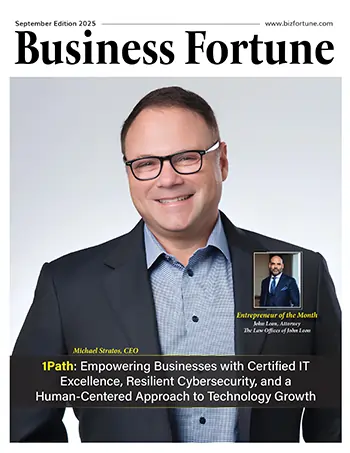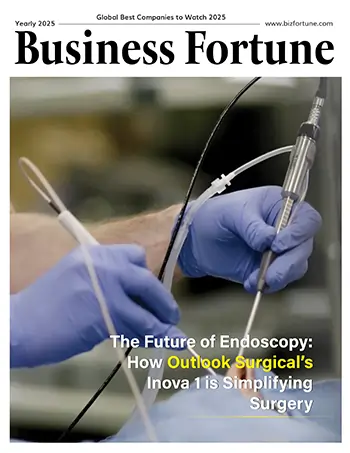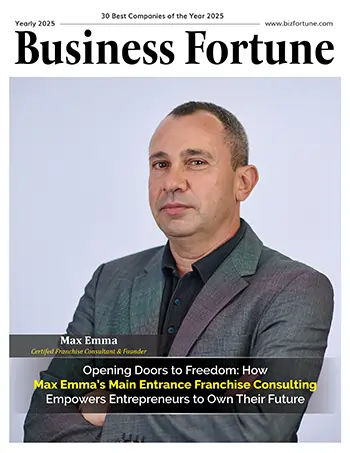Home Others Artificial Intelligence Rethinking Work, Humanity, and...
Rethinking Work, Humanity, and Collaboration to Succeed in the AI Age
Artificial Intelligence

Business Fortune
11 April, 2025
With the rapid advancement of artificial intelligence (AI), the worldwide discussion has shifted from job displacement to how humans may live, work, and even thrive alongside intelligent robots. Leaders from a variety of industries are promoting a future in which human creativity, flexibility, and compassion are enhanced rather than displaced, despite some people's concern about AI's disruptive power. There is increasing agreement in the boardroom, in the classroom, and even in the ecosystems of our planet that the AI age is about human development just as much as it is about technology innovation.
AI and Humans: Adding to, Not Taking the Place of
The world must simultaneously adjust to artificial intelligence's quick rise as the argument over whether it will save or kill humanity rages on. AI is no longer seen as merely coming to replace everyone's employment, even if two-fifths of workers' skill sets may change or become obsolete over the next five years owing to new technology.
How can we use AI to enhance our workforces rather than simply replace existing tasks, as stated by Jay Lee, the Director of the University of Maryland's Industrial AI Center and Clark Distinguished Chair Professor?
Soft Skills' Ascent in a Digital Age
The CEO of Educational Testing Service (ETS), Amit Sevak, says it's a chance to focus even more on those vital human skills. The AI era has brought attention to what were once referred to as "soft skills," including teamwork, creativity, and communication, which were not valued for many years.
Lee argues that as people are the center of the world, they need to play a key role in advancing civilization.
Placing Humanity and Nature at the Center of Innovation
Renowned photographer and conservationist Cristina Mittermeier believes that nature itself, not just people, should be prioritized over technology.
They're only beginning to realize how crucial creatures like whales are to the carbon cycle, Mittermeier said. Because they fertilize plankton, whales are more important than ever. Plankton breathes out oxygen and takes up carbon dioxide. We are only now beginning to understand the inner workings of our planet, and it turns out that the processes are maintained by the fabric of life.
Mittermeier aims to change the way people think about ecosystems and animals and make them think of our planet as a unique, delicate spacecraft that is securely transporting us throughout the cosmos.
The New Learning Imperative and the Half-Life of Skills
The speed at which technology is developing means that businesses and individuals need to do more than simply retrain for the AI era. The process of learning is nearly constant. Sevak discusses the "half-life of a skill" and how it is dwindling quickly. According to him, the value of a skill acquired today is half that of a talent acquired six years ago.
Adaptive Management in a World That Is Changing Quickly
According to Sevak, leaders ought to place a higher priority on their capacity to adjust to changing external circumstances. The markets are changing more quickly, and more geopolitical issues are coming up. What part does China play? What rules are emanating from Europe? What kinds of governmental reforms are taking place in important markets? It will be especially important this year to have an adaptable spirit—not being so fixed or having a fixed mindset, but more of a growth mindset or an adaptive mindset—because of the changes in technology, politics, and skilled labor and human capital.
Preventing Recency Bias: A Strategic Perspective
Another piece of advice from David Steinbach, CIO of the international retail investment management firm Hines, is to keep adapting and looking ahead.
The most important thing, in Steinbach's opinion, is making wise decisions. He believes that it will be simple to revert to some of their previous behaviors and to overlook some of the lessons they have all learned. It will be simple to succumb to recency bias. And he believes that avoiding falling for such is perhaps the most important item that investors should be considering this year.
Working Together Rather Than Outsourcing in the AI Era
According to Christophe Catoir, president of human resources firm Adecco, cooperation is now crucial, whereas outsourcing was formerly an optional addition. Speed is now far more crucial than ever when trying to gain a competitive edge. Thus, you must collaborate with the finest in your area and build a network of individuals and businesses that can work together to develop a development engine. Prior to now, outsourcing and insourcing were both acceptable options. He's not sure if it's a choice today.
Bridging the Global Health Divide via Coordinated Leadership
To close the health gap, international leaders must work together, according to Sania Nishtar, CEO of Gavi, and the Vaccine Alliance. In order to overcome the structural distortions inside nations, she discusses "exploiting synergy."
She asserts that in order to ensure that we speak with a single voice; the global health community has to work together much more. According to Nishtar, in order to do that, leaders need to do three things: communicate, communicate, and communicate clearly.
Being a leader who values diversity of thought and openness
Gita Gopinath, the International Monetary Fund's Deputy Managing Director, would probably concur with this statement. She loves hearing from a variety of perspectives as a leader, so people believe they may disagree with her.
Gopinath actively promotes a plurality of viewpoints and cautions against becoming trapped in an echo chamber, saying it's crucial to urge others to communicate openly and honestly with you.
Conclusion
The AI era is a call to improve mankind, not a countdown to obsolescence. We can transform upheaval into opportunity by emphasizing nature, embracing lifelong learning, investing in adaptation, and cultivating cooperative ecosystems. The future belongs to people who understand how to collaborate with machines and with one another, not to machines themselves.


































